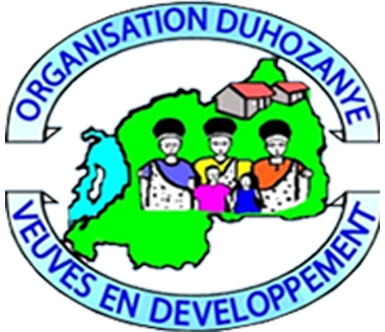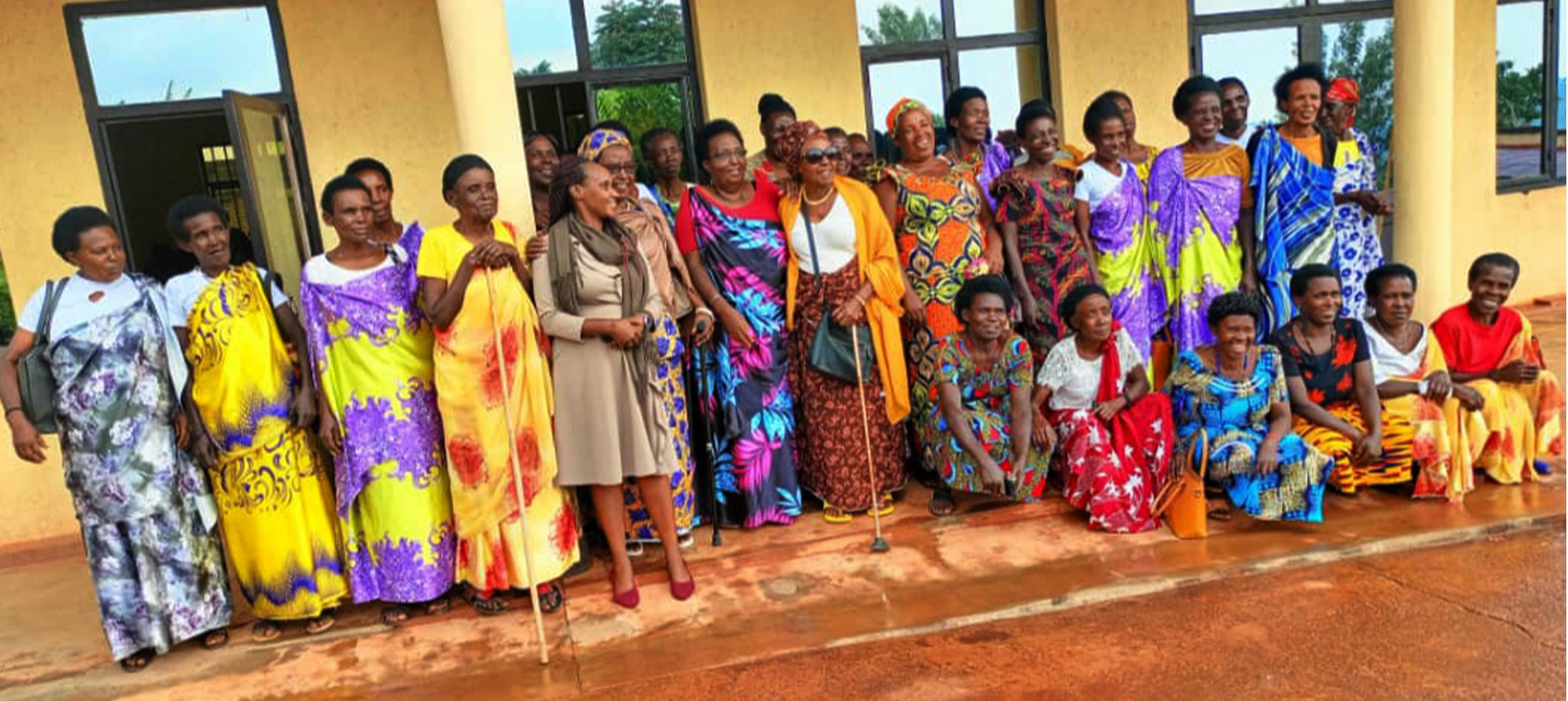I. Background and Rationale
Duhozanye is a Non-Governmental Organization founded in 1994; it is legally operating in Rwanda [southern
province] under the legal personality N o 131/11 of 2003. Its mission is “to support the empowerment of women
with a focus on widows of Genocide against the Tutsi and other vulnerable groups in the community”. In virtue of
its foundation, Duhozanye has been working as the prime genocide widows’ rights defender.
Rwanda counts among the countries hosting the highest number of widows especially due to genocide perpetrated
in Rwanda in 1994[during a 100 days’ period: April-July]. The World Widows Report of 2015 indicates that in
2002 widows in Rwanda counted 13.3% of female with the range age 12+, in 2012 widows counted 10.9% of
female with the same range age 3 . The last national census held in 2012 shows that the number of widows in
Rwanda was 492,571. 4
Indeed, the genocide widows form a significant percentage of survivors because the genocide perpetrators
targeted mainly men and boys. Data compiled by the genocide survivors fund shows that between 250,000 and
500,000 women were raped during the 100 days of violence 5 .
Beginning in 1999, the government of Rwanda passed and implemented reforms that granted women their rights
like men. However, as it is expected with widespread social reform, obstacles continue to inhibit widespread
gender equality in practice. Such as resistance to allowing daughters to inherit land from their parents, adherence
to assumptions of female inferiority, and the persistence of informal marriages, in which wives remain
unprotected by the new laws 6 .
According to NST1, the Rwandan government was committed to enhancing programs designed to support
vulnerable groups to eradicate extreme poverty in its social transformation pillar. The country committed and
ratified the different regional gender and women’s rights among them is the African Union protocol on the
African Charter on human and people’s rights on the Right of Women in Africa (2003). The article 20 of the
Maputo’s Protocol enshrines the rights of the widows.
The protocol stipulates that State Parties must take appropriate legal measures to ensure the widows enjoy all
human rights through the implementation of the following provisions:
a) That widows are not subjected to inhuman, humiliating, or degrading treatment
b) That a widow shall automatically become the guardian and custodian for children, after the death of her
husband, unless this is contrary to the interests and the welfare of the children.
c) That a widow shall have the right to remarry, and in that event, to marry the person of her choice.
The article 26 of the African Union Protocol on the African Charter on human and people’s rights on the Right of
Women in Africa (2003) indicates that the implementation and monitoring of this instrument will be governed by
the article 62 of the Africa Charter 1 which gives responsibility to each State Party to submit the periodic reports
every two years from the date the present Charter comes into force, a report on the legislative or other measures
taken, with a view to giving effect to the rights and freedoms recognized and guaranteed by the present charter 2 .
Duhozanye as part of the civil society organizations and women’s rights organizations, established by widows and
working especially with the purpose of supporting widows in their social-economic development, has developed a
shadow report on the article 20 of the Maputo Protocol related to widows’ rights.
II. Objectives of the shadow report
1. To show the progress of the implementation of article 20 of the African Union Protocol on the African
Charter on human and people’s rights on the right of women in Africa (2003) in Rwanda.
2. To identify gaps in the implementation of article 20 of the African Charter on Human and Peoples’ Rights
on the Rights of Women in Africa.
3. To outline recommendations to address the identified gaps to be communicated to key local and regional
stakeholders, particularly the Government of Rwanda.
References
1. Protocol to the African charter on human and peoples' rights on the rights of women in Africa.
2. African Charter on Human and Peoples’ Rights
3. World widows report 2015, by The Loomba Foundation
4. Microdata for Rwanda Population and Housing Census (RPHC- 2012), by National institute of Statistics
5. https://reliefweb.int/report/rwanda/rwanda-empowering-genocide-widows
6. https://scholarcommons.sc.edu/law_facpub University of South Carolina – Columbia aparnap@law.sc.ed
(2011), Procuring Meaningful Land Rights for the Women of Rwanda.
SHADOW REPORT, article 20 —FINAL - Duhozanye
Done by:
Duhozanye Management


